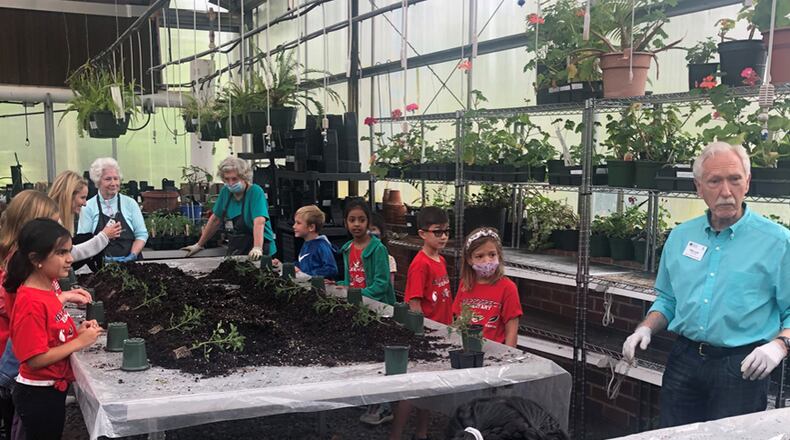Not much is free these days and when it is, don’t we all just suspect “they’re just trying to sell us something”? North Fulton Master Gardeners can take exception. Their fall gardening series is completely free. More importantly, you can trust the master gardeners who donate their time are providing accurate information.
Becoming a master gardener is a serious process. Those with a green thumb, or who want to improve their gardening success, attend 6-hour classes, once a week for 12 weeks to learn everything from soil composition and vegetable gardening to pest management. They must pass a pre-test, mid-term and final exam before committing to 50 hours of volunteer time before holding the title of Master Gardener Extension Volunteer. To keep the title, MGEVs donate another 25 hours each year on related projects.
The program is part of the University of Georgia Extension service. According to Gabrielle LaTora, UGA Extension Fulton County Agriculture & Natural Resources Agent, “It’s a rigorous program. Ph.D. level horticulturists from UGA teach these core classes on everything from plant propagation to supporting biodiversity.”
North Fulton Master Gardeners conduct spring and fall lectures as well as coordinate special events with local municipalities. Lee Tanenbaum, who earned her master gardener title 12 years ago, found the pandemic helped NFMG broaden its reach. “We began conducting our classes online and now have them available on YouTube. We’ve had over 19,000 people view our videos.”
The program earned the 2021 David Gibby International Master Gardener Search for Excellence Award for successfully continuing to provide horticultural education to the North Fulton community through virtual technology.
NFMG, in partnership with Sandy Springs, will host an Invasive Plant Management Workshop at 9 a.m. Saturday, Oct. 15 at City Springs. “A lot of native wildlife depend on native species for survival,” said LaTora. This workshop will provide tools to tackle uncontrolled growth of invasive species in the backyard and develop gardens attractive to pollinators and native wildlife.
When Sandra Shave moved to North Fulton from Wisconsin, she had to start all over learning what types of plants grow in the south’s red clay. Becoming a master gardener was her way of gaining that knowledge and connecting with like-minded souls. “Such an important part of the program is the social bond,” said Shave. “It’s important to be comfortable with people you like when you volunteer.”
Check out NFMG’s wealth of free information and lectures at www.nfmg.net and learn more about UGA Extension at www.extension.uga.edu.
About the Author
Keep Reading
The Latest
Featured


